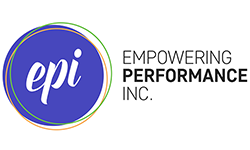Travels in Switzerland: Embracing Personal Responsibility
My daughter and I recently returned from vacation with friends in Switzerland, France, and Germany, capped off with a couple of days in Iceland. We hiked in idyllic natural surroundings and meandered through well-kept cities and villages, decompressing from our usual routines. Occasionally, however, my thoughts wandered to work and how the EPI team was faring in my absence. No news being good news, I was able to quickly return to the moment and enjoy myself worry-free.
But I couldn’t help but make mental connections between my current surroundings and one of the core philosophies of dynamic leadership: personal responsibility.
Switzerland is the epitome of personal responsibility. Yes, it’s one of the cleanest places I’ve ever been. And, yes, the trains do indeed run on time. But it’s more than that. It was obvious from the moment we set foot in Switzerland that the Swiss care deeply about their communities and take individual and communal responsibility for them. From Lucerne to Zermatt to Interlaken — and all the villages we visited in-between — there was no litter, no clutter, and even no jaywalking.
In fact, we saw evidence that this is a culture of expectations and accountability, driven by a strong sense of community (which could be one reason Switzerland consistently ranks in the top 10 of the World Happiness Report). At some crosswalks they have signs showing an adult holding a child’s hand — a reminder to do the right thing and set a good example for others. And there were no traces of one of my pet peeves: cigarette butts on the ground. If you do falter, there’s community accountability to pull you back on track. My daughter got the stink eye from another train passenger when she put her foot on the seat in front of her. Last time that happened!
Once we crossed the border into France, it was like entering. . . well, another country. The border may be geographically insignificant but certainly not culturally. It was like moving from a zone of orderliness into chaos. Traffic guidelines in France seem to be suggestions; in Switzerland, they’re most definitely rules that everyone follows.
All of this put me in mind of our leadership development program, and how we differentiate between accountability and personal responsibility. We think of it this way:
Responsibility encompasses a proactive, internalized mindset. Accountability is driven more by external forces.
Jack Zenger says “taking responsibility is the highest mark of great leaders,” and further describes it as:
“Being accountable means you are answerable and willing to accept the outcomes or results of a project or activity. But responsibility goes much further. It is the mindset that says, ‘I am the person who must make this happen,’ whether it stems from your belief or because your job requires this of you, or there is some social force binding you to this obligation.”
When we’re individually responsible, we have a personal investment in our work (or our community, etc.), and we behave accordingly. There’s also group responsibility, which means team members all hold one another accountable for results.
So, how do we deliberately cultivate a culture of responsibility?
Creating a culture of responsibility requires an environment in which people are:
Empowered to speak candidly
Encouraged to admit their mistakes without fear
Able to concentrate on completing tasks rather than looking better than other team members
The first step in creating that culture is for us as leaders to take personal responsibility for our own work and model responsibility to our teams.
When we consistently embrace personal responsibility, we foster trust. And that leads to deepened relationships and a whole lot of good work. Whether we’re there to “supervise” it or not.
I’m able to take a vacation far away only because of my team. I know they’re in good hands: one another’s. Each of them takes personal responsibility for their projects, their attitudes, and their commitment to the team as a whole. And that means our clients are in good hands too. Always.

